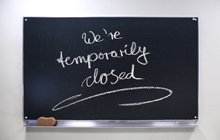Should I get my CPA designation in Canada or the U.S.?

CPA program coach and mentor Gevorg Grigoryan compares the two pathways to a professional career in accounting
VANCOUVER – Becoming a CPA is one of the most rewarding experiences you can have in your career. Once you complete a professional accounting program, you’ll feel a huge sense of pride in your accomplishment. But becoming a CPA is not easy. Many aspiring accountants ask whether they should pursue the chartered professional accountant (Canadian CPA) designation or the certified public accountant (U.S. CPA) designation. I believe the answer depends on your preferred career location.
The Canadian CPA Designation
To become a Canadian CPA, students must meet the academic prerequisites, complete the CPA Professional Education Program (PEP), pass the Common Final Exam (CFE), and obtain 30 months of qualifying practical work experience. This is the case for a majority of students but there are a few exceptions. For example, internationally trained accountants can challenge the CFE and transfer their credentials to the Canadian CPA without having to go through the entire program. This is covered under CPA Canada’s Memoranda of Understanding (MOU).
The four requirements to becoming a Canadian CPA (prerequisites, PEP, CFE, and work experience) are part of the CPA certification program. The educational component, called PEP, consist of six, 8-week modules. I find the first two modules (Core 1 and 2) to be the most challenging because of the breadth of topics tested. Fortunately, each module is taken separately, except in the fast-track modules where two modules can be taken simultaneously.
The first four modules (the Cores and Electives) have exams made up of cases and objective-format questions (MCQs). Students entering PEP from university find the cases challenging because of their integrative nature and ambiguous requirements. Case-based exams are only part of the Canadian CPA pathway, which is perhaps why the Canadian CPA is called one of the world’s most rigorous programs.
The CFE is offered once or twice per year and has an average 75% pass rate. The CFE is marked based on displaying competencies and average performance.
The U.S. CPA Credentials
To become a U.S. CPA, students must fulfil educational requirements, pass four 4-hour exams, complete an ethics exam (if required by state), and obtain required work experience (if required by state). These four requirements (education, exams, ethics, experience) are known as “the four Es.”
While the Canadian CPA program has six modules and a CFE, the U.S. CPA has only four section exams:
- Auditing and Attestation (AUD)
- Business Environment and Concepts (BEC)
- Financial Accounting and Reporting (FAR)
- Regulation (REG)
Candidates take the four sections during four testing windows throughout the year. To pass, candidates must score a minimum of 75 out of 100 on each part. The four exams, which are called the Uniform CPA Exam, have an average 53% pass rate, much lower than the Canadian exam pass rates. Unlike the Canadian CPA exams, the U.S. exams are made up of multiple-choice questions (MCQs), task-based simulations (TBS) and small written communications (WCs). There are no lengthy cases, no integrative requireds, and no final, multi-day exams to tackle
While the Canadian CPA program takes 24-30 months to complete, the U.S. CPA exams have a strict 18-month deadline to complete. Let’s summarize the two options. Here’s a table with both the Canadian and U.S. CPA programs on key metrics:
|
|
Canadian CPA |
U.S. CPA |
|
Educational requirements |
Baccalaureate degree, 120 credit hours, specific subject area coverage |
Baccalaureate degree, 150 credit hours, specific subject area coverage, other [1] |
|
Number of exams |
8[2] |
4 [3] |
|
Average pass rate |
86% modules, 75% CFE [4] |
53% combined |
|
Exam scoring |
Displaying competencies and average performance (i.e., scaled) |
Min. 75 out of 100 (i.e., standardized) |
|
Exam style |
Cases, MCQs |
MCQs, TBS, WC (minor) |
|
Study style |
Self-lead |
Online facilitated |
|
Program costs |
$13,000[5] |
$3,000[6] |
|
Supplementary prep fees |
$400 to $2,000 |
$1,000 to $3,000 |
|
Duration |
24 to 30 months |
18 months |
|
Work experience requirements |
30 months |
6 to 24 months [7] |
[1] US CPA educational requirements are governed by individual state boards.
[2] Four module exams (Core 1, Core 2, Elective 1, Elective 2), one Capstone 1 exam, three-day CFE.
[3] Four section exams (AUD, BEC, FAR, REG).
[4] Average pass rate for modules is 86%, while CFE is 75%.
[5] Does not include pre-requisite courses. See Canadian Accountant article: http://www.canadian-accountant.com/content/business/how-much-does-it-cost-to-take-the-cpa-program-in-canada.
[6] Varies by state. Includes application fee, exam fees, registration fees, ethics exam fees. Does not include travel to Prometric exam locations.
[7] Varies by state.
Choosing the right program: Canadian vs. the U.S. CPA
If you are interested in working as an accountant in the U.S., it’s best to pursue the U.S. CPA credential. You will learn U.S. GAAP and prepare yourself for an American career. It’s also quicker and more cost effective. If you are interested in working and staying in Canada, you should pursue the Canadian CPA program. It’s a prestigious and highly respected designation that prepares you for an accounting career in Canada. It also has higher pass rates and facilitated modules.
To improve your chances of passing, I suggest signing up for a coaching program, such as the CPA prep course that I offer. You have three attempts at the module exams and the CFE, so, if you are unsuccessful three times, you may consider attempting the U.S. CPA. Despite the lower pass rates, the U.S. CPA exams are somewhat easier due to the objective format of the questions and extended exam windows. Once you obtain your U.S. CPA credentials, you can either keep it or transfer to the Canadian CPA, but the process is complicated for U.S. CPAs who are, or have been, Canadian residents.
Transferring U.S. to the Canadian CPA designation
Transferring your credentials to the Canadian CPA has many advantages. Many employers in Canada look for the Canadian CPA designation. For example, for Canadian positions that require financial reporting and tax analysis, Canadian CPAs have the upper hand in the selection process. On the other hand, with the U.S. CPA, you can apply for positions such as senior financial analyst or business analyst and have the same advantage as a Canadian CPA — your work experience will take precedence.
If you keep your U.S. CPA, you can designate the CPA letters after your name once you receive approval from your provincial CPA body. If you decide to transfer, make sure to read CPA Canada’s eligibility and transfer steps. Most Canadians will not be eligible to transfer because, assuming you were a Canadian resident while completing the U.S. CPA exams, you will be required to have:
- A university degree in the U.S. from having attended in person on a full-time basis, or
- Have at least one year of full-time practical experience in accounting in the U.S.
This means you must physically study or work in the U.S. to transfer your credentials. You cannot use a U.S. CPA as a “shortcut” to attain the Canadian CPA designation.
Final considerations
Think about your desired career path, the costs and benefits of cross-border work experience, and the educational requirements of each program before making the decision. If you’re interested in growing in a role that doesn’t require financial reporting nor tax analysis, either of the CPA programs may be sufficient.
If you want to stay and work in Canada, then without a doubt pursue the Canadian CPA designation. With over 200,000 members, you will become part of one of the largest accounting organizations in the world, learn in-depth the Canadian accounting frameworks, and become a well-paid professional with an accelerated career growth.
Gevorg Grigoryan, CPA, is an accounting manager and instructor, mentor and coach to students in the CPA program. Visit Gevorg CPA to learn more and subscribe to Gevorg’s YouTube channel to access CPA program videos.










(0) Comments